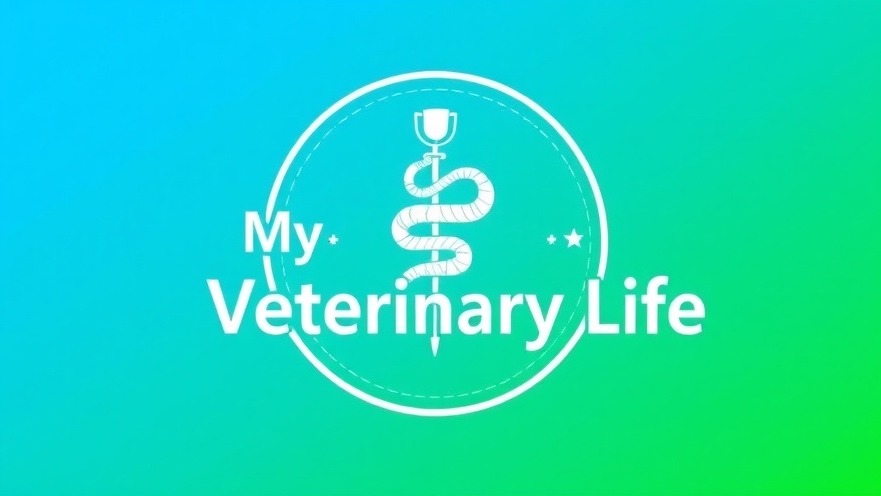
Understanding Exotic Pets: Tips for Responsible Ownership and Care
As pet ownership becomes increasingly diverse, the allure of exotic pets grows ever stronger. From charming sugar gliders to colorful reptiles, these unique companions can add excitement and joy to our lives. Yet, as Dr. Madonna Livingstone emphasizes, it's essential not to panic when challenges arise in their care. Rather, understanding their unique needs is vital in fostering a healthy partnership between pet and owner.
The Importance of Specialized Care for Exotic Animals
Owning an exotic pet comes with responsibilities that differ vastly from those of common pets like dogs and cats. Unlike traditional vets, exotic animal veterinarians specialize in treating a wide array of species, which can include birds, reptiles, and small mammals. Research highlights that many veterinarians lack training in exotic care, making it critical for owners to find specialists capable of delivering proper treatment.
As Dr. Diaz noted in a recent blog post, owners often find themselves unprepared for the unique dietary, environmental, and health needs of their exotic pets. This includes understanding how to create suitable habitats that mimic their natural surroundings, as well as recognizing the specialized diets required to maintain their health and vitality.
How to Vet Your Veterinarian
Just as you wouldn’t trust your feline’s health to a dog specialist, it’s crucial to find veterinary professionals who specialize in exotic animals. A well-trained exotic vet should have the knowledge to understand the specific health risks and needs of your pet.
Some important questions to ask when selecting a vet include their experience with your specific type of exotic pet and their approach to preventive care. Regular check-ups are crucial, as early detection of health issues can significantly improve outcomes.
Creating a Sustainable Living Environment
Owning an exotic pet requires more than just love; it necessitates a commitment to providing a suitable living environment. This often involves installing specialized enclosures that cater to your pet’s needs for space, temperature, and humidity. For instance, a bearded dragon may require a larger terrarium with specific heating and lighting setups, while small mammals like guinea pigs thrive in spacious habitats filled with hiding spots and toys.
Experts recommend researching the needs of your specific pet species, as many require environments that support their well-being. A habitat designed to mimic natural conditions can reduce stress and contribute to healthier animals.
Understanding the Challenges of Exotic Pet Ownership
Exotic pets can exhibit behaviors and health needs that differ significantly from traditional pets. Therefore, it’s important to compensate for their unique challenges:
Legal Considerations: Many regions have regulations governing exotic pet ownership, making it essential to research local laws before acquiring a new pet.
Diet and Nutrition: Each species has vastly different dietary requirements that may necessitate supplements and specialized food.
Environmental Stress: Unlike domesticated animals, many exotic species are less tolerant of stressful environments, which can hinder medical treatment.
Enrichment and Behavioral Needs
Exotic animals often need mental stimulation to thrive. Behavioral enrichment can include toys, climbing structures, and interactive activities to engage their natural instincts. Engaging with your pet through training or playtime not only strengthens your bond but encourages active, healthy behaviors.
As Dr. Livingstone puts it, providing enrichment is essential for a higher quality of life. Understanding the psychological aspects of your exotic pet is as critical as their physical needs.
Final Thoughts: Embrace the Journey of Exotic Pet Ownership
Taking on the responsibility of an exotic pet can be a rewarding experience filled with unique joys and challenges. As a potential or current exotic pet owner, it’s crucial to educate yourself on their needs and be proactive in their care. By doing so, you will not only enrich their lives but also enhance your own.
For those aligned with the exotic pet community, whether you are a veterinarian, trainer, or just a passionate pet lover, it’s essential to work together for the well-being of these magnificent creatures. Together, we can create a world where exotic pet ownership is a fulfilling and ethical pursuit.
So, take the leap – start learning, start connecting, and embrace the beautiful responsibility of exotic pet ownership today!
 Add Row
Add Row  Add
Add 


Write A Comment